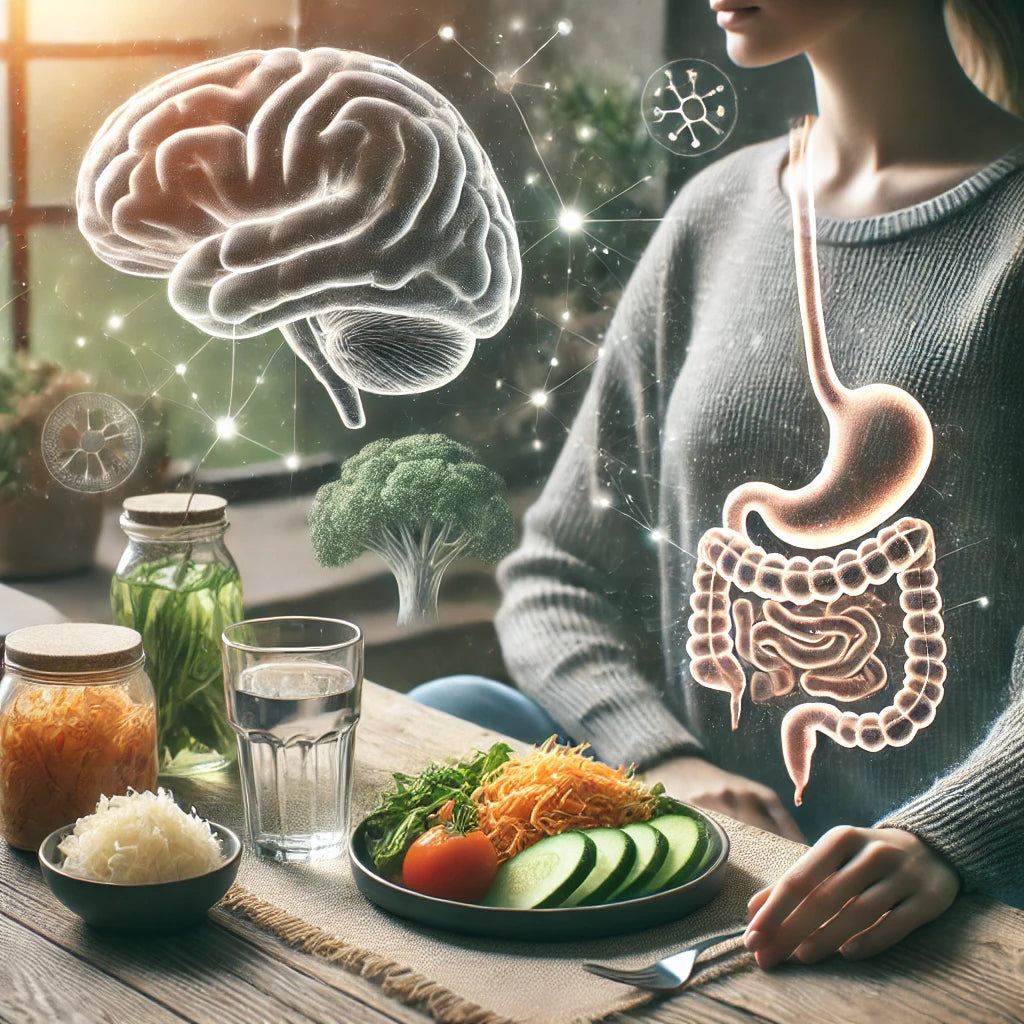
The connection between gut health and mental wellness
What you eat can have a profound effect on your mental health. In recent years, research has increasingly highlighted the critical link between gut health and mental wellness. Often referred to as the "second brain," the gut plays a pivotal role in regulating our mood, stress levels, and overall mental health. We need to better understand this connection so we can be more confident in taking proactive steps to improve both our digestive and mental well-being.
The Gut-Brain Axis: How It Works
The gut and brain are in constant communication through what’s known as the gut-brain axis. This two-way pathway allows the gut and brain to send signals back and forth, influencing each other's function. The gut is home to trillions of microorganisms—collectively known as the gut microbiome—that play a key role in this communication process.
Neurotransmitter Production:
The gut microbiome is involved in producing neurotransmitters like serotonin, dopamine, and gamma-aminobutyric acid (GABA), all of which are crucial for regulating mood, anxiety, and happiness. In fact, about 90% of serotonin, often dubbed the "feel-good" hormone, is produced in the gut.
Inflammation and Immune Response:
An imbalance in gut bacteria (dysbiosis) can lead to inflammation, which not only affects gut health but also crosses the blood-brain barrier, potentially contributing to mood disorders like anxiety and depression.
Stress Response:
The gut microbiome also influences the body's stress response by interacting with the hypothalamic-pituitary-adrenal (HPA) axis, which regulates cortisol levels. A healthy gut can help modulate this response, potentially reducing the impact of stress on mental health.
How Gut Health Impacts Mental Wellness
Anxiety and Depression:
Studies have shown that individuals with anxiety or depression often have imbalances in their gut microbiome. Probiotics, known as "psychobiotics" when used to treat mental health conditions, have been found to alleviate symptoms of these disorders by promoting a healthier gut environment.
Cognitive Function:
Emerging research suggests that gut health can influence cognitive functions such as memory and learning. A healthy gut microbiome supports the production of brain-derived neurotrophic factor (BDNF), a protein that promotes the growth of new neurons and is essential for learning and memory.
Sleep:
The gut microbiome is also linked to sleep quality. Poor gut health can disrupt the production of serotonin, which is a precursor to melatonin, the hormone that regulates sleep cycles. Improving gut health can, therefore, enhance sleep quality, which is crucial for overall mental wellness.
Improving Gut Health for Better Mental Wellness
1. Eat a Fibre-Rich Diet:
Fibre is essential for feeding the good bacteria in your gut. Include plenty of fruits, vegetables, whole grains, and legumes in your diet. Soluble fibre, found in foods like oats, apples, and flaxseeds, is particularly beneficial.
2. Incorporate Probiotics and Prebiotics:
Probiotics are live bacteria that can be found in fermented foods like yoghurt, kefir, sauerkraut, and kimchi. Prebiotics, on the other hand, are non-digestible fibres that feed probiotics. Foods rich in prebiotics include garlic, onions, bananas, and asparagus.
3. Reduce Sugar and Processed Foods:
Excessive sugar and processed foods can promote the growth of harmful bacteria in the gut, leading to dysbiosis. Reducing sugar intake and eating whole, unprocessed foods can help maintain a healthy gut microbiome.
4. Manage Stress:
Chronic stress can negatively impact the gut microbiome, leading to increased gut permeability and inflammation. Incorporate stress-reducing practices such as meditation, deep breathing exercises, and regular physical activity to support gut health.
5. Get Enough Sleep:
Poor sleep can disrupt the gut microbiome, creating a vicious cycle of poor gut health and mental wellness. Aim for 7-9 hours of quality sleep each night to support both gut and brain health.
The connection between gut health and mental wellness is profound, underscoring the importance of maintaining a healthy gut to support overall mental health. Fortunately, the best way to optimise your gut health is by doing the simple things that I preach on a regular basis. A balanced diet, incorporating probiotics and prebiotics, managing stress, and getting adequate sleep, can help improve both your gut health and mental well-being. As research continues to evolve, it becomes increasingly clear that taking care of your gut is essential for a healthier, happier mind.



Leave a comment
This site is protected by hCaptcha and the hCaptcha Privacy Policy and Terms of Service apply.